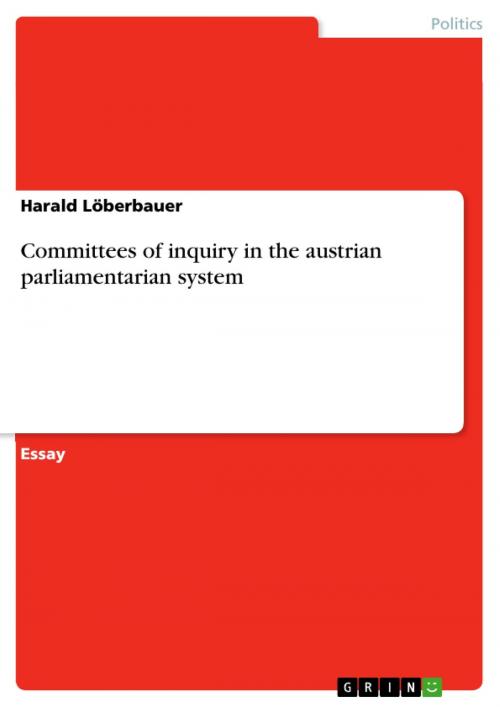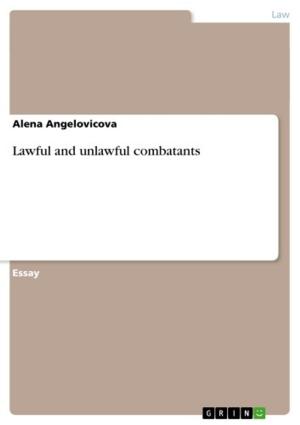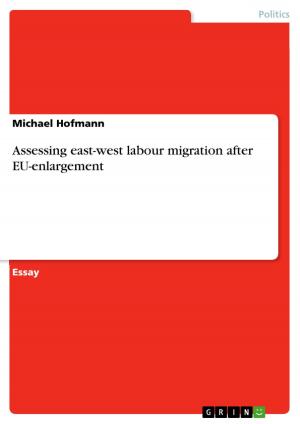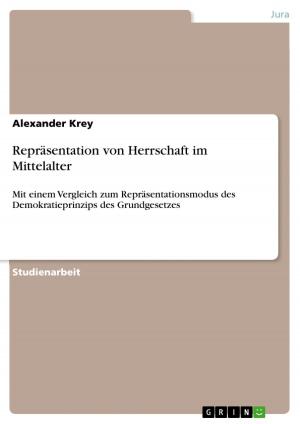Committees of inquiry in the austrian parliamentarian system
Nonfiction, Social & Cultural Studies, Political Science, International, Foreign Legal Systems| Author: | Harald Löberbauer | ISBN: | 9783638527682 |
| Publisher: | GRIN Publishing | Publication: | July 28, 2006 |
| Imprint: | GRIN Publishing | Language: | English |
| Author: | Harald Löberbauer |
| ISBN: | 9783638527682 |
| Publisher: | GRIN Publishing |
| Publication: | July 28, 2006 |
| Imprint: | GRIN Publishing |
| Language: | English |
Essay from the year 2006 in the subject Politics - Political Systems - General and Comparisons, grade: 1, Diplomatic Academy of Vienna - School of International Studies (Vienna School for International Studies), course: National and International parliamentary bodies, 14 entries in the bibliography, language: English, abstract: ... Checking the government is an essential component of the democratic principle and a central duty of most parliamentary bodies in the world. This is true for the austrian parliament as well. Legally committees of inquiry are very important in the austrian system of checking the government on special fields of interest. Parliamentarians do not depend on governmental information, but they can also acquire their own information with certain procedures. So each parliamentarian can practice fact finding on his or her own. According to austrian law a committee of inquiry is a committee that has been adopted by the Nationalrat by majority decision. The aim of such a committee is the investigation of a special governmental activity in a special policy. Committees of inquiry are ad hoc committees. That means that they are set up only for one special purpose and that they will be terminated when the aim has been reached. It is not allowed that committees of inquiry are established without an aim and for a longer period of time than necessary. They are not designed for a constant checking the government by the parliament. Committees have to prove that the government has worked according to parliamentarian preparations and guidelines or not. The committee has to prove that the government or members of the government alone or together misused their power. After the investigation process the members of the committee of inquiry have to report to the Nationalrat. Only the Nationalrat has the power to decide what will happen to the government or a single minister. One of the instruments the parliament then can use is to prepare for a motion of no-confidence against the whole government or against one or more minister ...
Essay from the year 2006 in the subject Politics - Political Systems - General and Comparisons, grade: 1, Diplomatic Academy of Vienna - School of International Studies (Vienna School for International Studies), course: National and International parliamentary bodies, 14 entries in the bibliography, language: English, abstract: ... Checking the government is an essential component of the democratic principle and a central duty of most parliamentary bodies in the world. This is true for the austrian parliament as well. Legally committees of inquiry are very important in the austrian system of checking the government on special fields of interest. Parliamentarians do not depend on governmental information, but they can also acquire their own information with certain procedures. So each parliamentarian can practice fact finding on his or her own. According to austrian law a committee of inquiry is a committee that has been adopted by the Nationalrat by majority decision. The aim of such a committee is the investigation of a special governmental activity in a special policy. Committees of inquiry are ad hoc committees. That means that they are set up only for one special purpose and that they will be terminated when the aim has been reached. It is not allowed that committees of inquiry are established without an aim and for a longer period of time than necessary. They are not designed for a constant checking the government by the parliament. Committees have to prove that the government has worked according to parliamentarian preparations and guidelines or not. The committee has to prove that the government or members of the government alone or together misused their power. After the investigation process the members of the committee of inquiry have to report to the Nationalrat. Only the Nationalrat has the power to decide what will happen to the government or a single minister. One of the instruments the parliament then can use is to prepare for a motion of no-confidence against the whole government or against one or more minister ...















